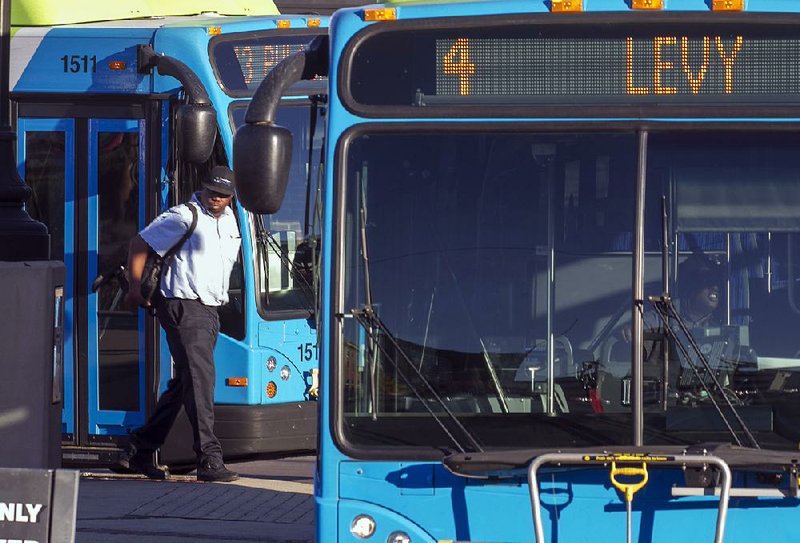Rock Region Metro has finalized a $5.6 million deal to purchase its first five electric buses, which will allow the Pulaski County transit agency to retire the remaining diesel buses in its fleet by 2025.
The deal includes five Proterra ZX5 Max 40-foot electric buses for $4.9 million and the charging infrastructure for $700,000. The buses aren't expected to be in service until 2023.
Most of the money comes from a $4.9 million grant Rock Region was awarded in June 2021, the largest competitive grant ever awarded to the agency.
Each zero-emission battery electric bus, often referred to as BEBs in the industry, will cost $990,358.60, according to the terms of the contract. The price tag is considerably more than a diesel-powered bus or a low-emission compressed natural gas-powered bus.
The base price for a 40-foot diesel bus that can be acquired under a joint procurement contract maintained by the Arkansas Department of Transportation is $414,391, according to Becca Green, the spokeswoman for the transit agency.
Rock Region paid $518,878 for its incoming compressed natural gas buses, she said, citing a memo from a May 2021 board meeting.
"BEBs are more expensive than diesel- and CNG-fueled buses, yes, but the federal investment in low/no transit vehicles signals a strong interest in steering public transportation agencies toward CNG and electric buses for the future," Green said. "This cost difference is also in line with the difference in costs for gas-fueled personal vehicles versus electric-powered personal vehicles.
"The batteries in electric vehicles tend to be more expensive to produce, and there are multiple batteries on a battery electric bus."
The agreement the board approved with Proterra Tuesday includes a provision that Rock Region lease the bus batteries from Proterra, which means the company will be responsible for them if anything goes wrong.
"Should a BEB battery fail, the Proterra team will arrange on-site verification of the failure and maintenance action from a Proterra professional," Green said.
Delivery of the electric buses is December or possibly early next year, she said.
Exposure to diesel pollution contributes to 27,000 heart attacks, 14,500 hospitalizations and 2.4 million lost work days each year, according to the Clean Air Task force.
The Environmental Protection Agency has reported each federal dollar invested in clean diesel projects generates between $5 to $21 in savings.
Rock Region Metro, the state's largest public transit agency, serves Little Rock, North Little Rock and Pulaski County with about 1,600 stops in the system and 49 buses at its peak prior to the pandemic.
The electric buses will join 31 compressed natural gas buses and 10 or fewer diesel buses.
Rock Region will pursue more federal grants for electric buses, agency officials said. The agency won its $4.9 million under the low or no vehicle emission grant program when $183 million was available. The amount available this year has jumped to $1.1 billion.
"We're working through some concepts," said Justin Avery, Rock Region's interim chief executive officer.

